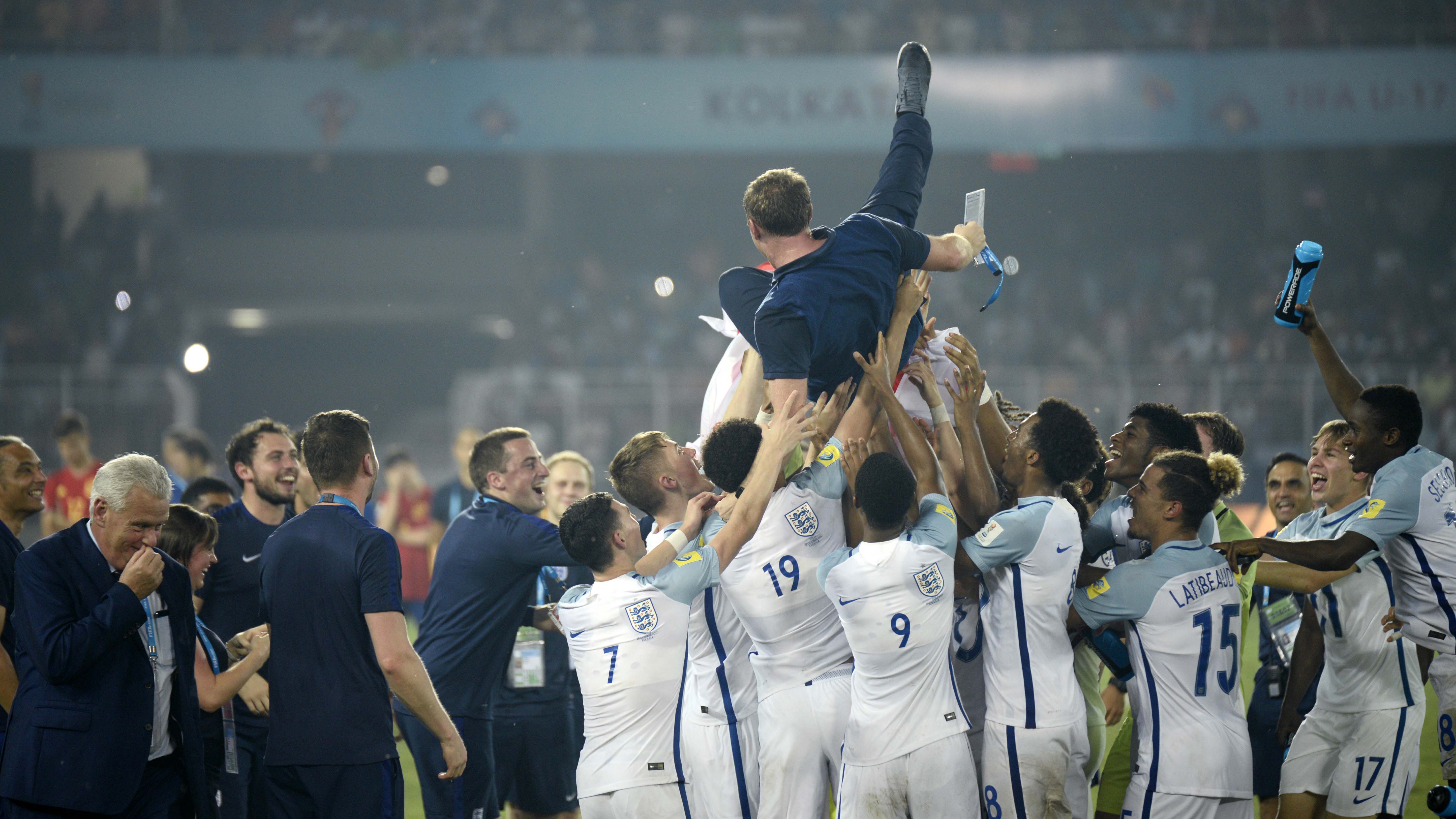England insight

How different viewpoints contributed to England's summer of success
- Peter Glynn
- 28 March 2019
England national coach, Neil Dewsnip, tells Peter Glynn how different perspectives helped contribute to England’s impressive summer at youth level.
2017 was a good year for England’s men’s youth teams. An unprecedented summer of success saw the Young Lions collect four trophies including the FIFA World Cup at both U17 and U20 age-groups as well as the UEFA European Championship at U19 level.
There was also victory at the Toulon tournament in France back in June. Neil Dewsnip, FA national coach, led a group of U20 players to victory in the prestigious youth tournament overcoming Ivory Coast on penalties in the final. It would prove to be a good omen at the start of the summer. The next day, Paul Simpson’s side lifted the FIFA U20 World Cup in South Korea.
Head coaches, Simpson, Keith Downing [U19] and Steve Cooper [U17] quite rightly received huge acclaim for their achievements in England’s headline-making success but have been quick to point towards the contribution of many members of staff working in the FA technical directorate - both on and off the pitch.
With huge numbers of personnel supporting each event – as well as many more back at St. George’s Park – the need for teamwork, collaboration and effective communication has been crucial. One way in which the Three Lions have approached this complex task is by having ‘multiple eyes’ looking at every aspect of tournament life, a role Dewsnip has supported with at the U19 and U17 successes.
The role of head coach is a huge responsibility and one people may not fully understand
Providing additional support to the tournament operation, can help the head coach focus on their job without the many possible distractions, explains Dewsnip.
“The role of head coach is a huge responsibility and one people may not fully understand," explains Dewsnip.
"The head coach is the leader of a massive multidisciplinary team. On a big event like the World Cup you might have up to 20 members of staff and every one of those 20 wants a little piece of you.”
Dewsnip believes having technical staff supporting the head coach from a more detached position has been a hugely effective move.

“Having a member of staff in a supporting and advisory role allows the head coach time to breathe and to think and to do their job - which is ultimately to win football matches. So the role I was playing can look like a variety of things, whether that's dealing with media, dealing with a member of staff, dealing with a situation, or simply being there to say ‘do you fancy a cup of coffee?’
“Having somebody as part of the technical staff who is less emotionally attached is important. I'm sure I speak for all the other national coaches when I say that when you're on the grass and you are coaching, it's very high energy and it’s full of enthusiasm, so you're less detached. Not being part of that allows you to look at things from a different perspective.
“Matchday has been really interesting. At half-time the head coaches I worked with would gather all the thoughts of the immediate staff around them from the bench and then would invite me to add any other observations that I’d seen by watching in the stand – you might just add one small detail but it all helps,” added Dewsnip.
The insight shared by Dewsnip raises a number of interesting questions for coaches working at different levels of the game:
- Do you ever ask for an alternative opinion on matchday or during training?
- How could you use your co-coach, parents or a volunteer to facilitate this?
- What specific areas of the game/process would you ask them to look at and why?
- Have you ever considered what benefits there are from watching the game from a different position?
- What are the advantages/disadvantages of watching the game/training from different viewing points?
This article was first published in The Boot Room magazine in December 2017.


























